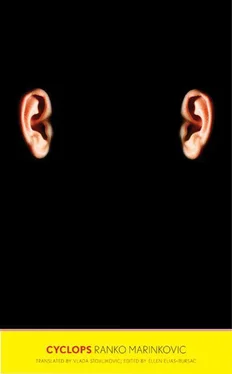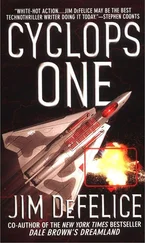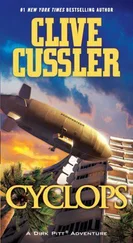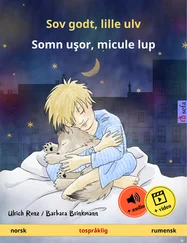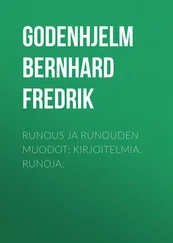“Take a good look — the other one’s just like it, wanna see?” This is such stuff as dreams are made on, he thought hurriedly.
“Don’t part them for my sake,” he tossed to her, moving by, “let the sisters live in harmony … and say hello to their Mama.”
“And you, dimwit, stop flogging the lizard!” she grumbled crankily after him.
“It’s mine to do with as I please. …”
“Boil it for your girlfriend’s birthday dinner!”
“Give me your address — I’ll send you the soup. …”
Melkior let her have the last word, but the distance rendered what she said unintelligible. Who would ever go to bed with someone so … yellow? Mr. Kalisto, the papal namesake. He remembered the man’s pink gums and spat in disgust. The father of such a son!
Hey, this must be magic! — he heard the son’s voice from a distance. Melkior halted. The night was uncertainly transmitting the words of Ugo’s pathos-drenched recitation … to the queen of all women … This was in honor of the “fox fur” in the doorway behind — she had bandied her legs about for him, too. … To chrysanthemums’ sister. … Already she was sending him away and Ugo was, like a tenacious little dog, barking out further verses in her honor by the doorway. He ended his recitation with his arm high in the air. … I raise this glass to your health … (Melkior saw him under the lamppost as a black silhouette), then bowed deeply Madam! And went on his way with another poem. He approached with a drunkard’s big uncertain steps, his galoshes squelching noisily as far as the pavement was wide. “And now I’m off to Khabarovsk,” he announced boastfully out ahead, making wide and important sweeps with his hands in some sort of hurry.
Abruptly he halted. His expression was anxious, he was looking mournfully down at the ground. “I? What am I?” he asked himself bunching his fingers in front of his nose. “I’m a bug,” he replied with a kind of false despair and went resolutely on his way, “but I’m off to Khabarovsk all the same.”
Melkior moved into the shadow of the monument to poet Petar Preradovic to let Ugo pass.
But Ugo halted in front of the statue. The bronze poet held a pencil and sheet of paper; awaiting inspiration, he was staring at the front of the building opposite.
“I say, Petar, sir, do you know what tartalom means … in Hungarian?” Ugo asked him; watching him provocatively from down below, he waited a moment for the poet to reply. “You don’t, do you? You think it’s some kind of Greek hell, ha-ha. … It means content. So much for today. Take it down,” and he turned to leave, only to spin back right away: “One more thing, Petar — I’m a bug. That’s off the record. Goodbye.”
Melkior gave Ugo time to make some headway, then followed him.
Where’s he coming back from? From … her? he thought with hesitation.
But “she is not there — she’s not to be found there anymore,” ATMAN had said. So, where is she now … now that it’s my turn? The turn wrested a profound sigh from him.
“I? What am I?” asked Ugo of the entire city that slept on behind darkened windows and cared not a whit. …
Yes, indeed — what is he? wondered Melkior. All right, I’m Eustachius … although that’s not quite clear either … but what is he, the Parampion, Ugo, Mr. Kalisto’s son? And the city doesn’t care, the city (Melkior was having his joke) which has the honor … who knows? … does anyone know what he is, the Parampion, Ugo, Misterkalistosson? Or what he might yet become? Approach with caution! Because later on, if he became a He, what might we be in for? — fear or shame, depending on whether he would be lenient or not. Today he’s a bug — but what about tomorrow? Hey nonny noe, does anyone know?
“I? I’m a bug!” Ugo kept informing the sleeping city of his minuscule despair.
… Or his dreadful threat, hey nonny noe, does anyone know? went on Melkior with his joke, but less vigorously now — after all, who knows?
A thick jet of water had blocked Ugo’s way and was hissing threateningly, would not let him pass. The joking workmen had used their hose to stop the bug. He was trying to maneuver his way past the watery reptile, to distract its attention and scuttle away, but the arching reptile was rearing at him again and again. The little game had been going on for some time.
“Esteemed hose-wielding working men,” Ugo addressed the workmen, opening the rally, “with this mighty weapon in your hands …”
Why did he cut his speech short? Melkior was unable to make it out from his distance. Look, he’d started a quiet conversation with them; the workmen had taken a break, turned the water off, they were laughing, thumping him on the back. There, he was already having a cigarette with them! Honestly, there must be some dark force on his side! What did I say? He’ll win them over, too. He wins everyone over, men and women, Parampion the Conqueror! And he does it using what? His eyes, his mouth (his fillings!), his words, his gestures … all of it fraudulent. He felt like shouting across there: “The man’s lying!” And what would have happened? — They’d only stone me, that is to say they’d sweep me away with the water from their mighty hose, the hosers!
Envy shook him, like that, at a distance. He was “in the circle of his family” over there, among people, among his own. They were patting him on the back and he was laughing at them in his snotty nostrils, amusing himself, mocking them. “Working men!”
What is it they see in him? Melkior was disbelieving ATMAN, now. What she sees in him is an entertainer, a monkey, a romp. He had drunk his fill at her place. They’d taken back sausages, bread, booze. … Two couches: now you come to me, not like that, visit me on my couch, Mr. Romper … wait, not right away, court me a bit first. Liver-paste smears on the white bedsheets, soak one end of the towel, what will the washerwoman say? Perhaps it was at the very same moment … as “Adam and Eve” (before Coco broke down the door) … perhaps it was at the same moment that we were romping?
Melkior fingered Enka’s key in his pocket with pleasure. … But he’s got the key to her flat! He showed it to me! he replied to a voice that was trying to console him.
But over there, around the hose, the idyll seemed to have ended. Well, there you are, I knew he was conning them … just to cadge a couple of cigarettes!
Ugo was quickly moving away from the reach of the hose; he was now revealing his deceit:
“Working men … proletariat …” he trumpeted at them with pursed lips, insultingly, sounding like an inflated balloon as it expels the air, “Come on, proletariat, spray me …”
They didn’t hesitate: in the blink of an eye they pointed the hose his way, took aim and opened the valve. The mighty jet shot vengefully forth at Ugo. Will it reach him … will it reach him? … Melkior rooted for the avenging hose.
Then Ugo let out a cry of pain: he had been hit. His hat spun in the air. The workmen shouted “Hooray” like gunners hitting their target. The quickness of the revenge gave them back their self-assurance and a taste for malevolent cackling.
They laughed at their dripping adversary.
“Long live capitalism! Down with surplus value! Long live the First of May devotions!” shouted Ugo in a kind of hysterical despair.
The workmen laughed loftily at the shouts. “Howl on, bud.” They no longer heeded him — they went on washing the street.
The pleasure of the victor, thought Melkior. He was no longer on their side … although … well, they were right. The wet clown in the arena. He felt Ugo’s coldness on his own skin. That was what it had been like back at the stable with Nettle … wet, cold, next stop pneumonia, I shouldn’t wonder. O Parampion, you jester, your place ought to be at the royal table. Who knows what oaf will be bumping into your skull with his spade … if, that is, your skull is still in one piece once all this is over with and done. And there will be no Hamlet to ask, “Whose was it?” “A whoreson mad fellow’s it was. … A pestilence on him for a mad rogue! This same skull, sir, was the Parampion’s skull.” “Let me see (Hamlet takes the skull) — Alas, poor Parampion! — I knew him, Eustachius: a fellow of infinite jest. — Where be your gibes now? your gambols? your songs? your flashes of merriment that were wont to set the table in a roar? Not one now, to mock your own grinning? quite chap-fallen?” Quite, good my prince.
Читать дальше
